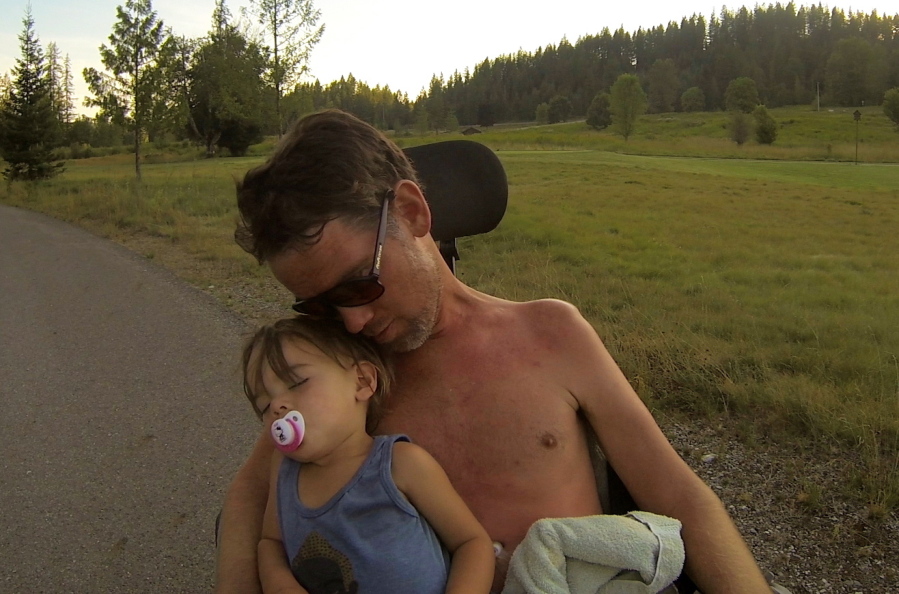If you were told you had a crippling terminal illness, how would you choose to live out the rest of your life, in the face of that death sentence? In the case of Steve Gleason — the former football player diagnosed with amyotrophic lateral sclerosis in 2011, and the subject of the documentary “Gleason” — the answer is: with a greater appreciation for the time you have left.
As a safety for the New Orleans Saints, Gleason is best known for blocking a punt against the Atlanta Falcons during a 2006 home game at the Superdome, 13 months after Hurricane Katrina. That play felt like rebirth for the team and for the city, and footage of Gleason’s gridiron exploits show seemingly boundless physical energy. That makes the disease’s effects all the more cruel.
Three years after retiring from the NFL, Gleason, then 34, received back-to-back bombshells: Within weeks of a diagnosis of Lou Gehrig’s disease, he learned that his wife, Michel, was pregnant. Concerned that he may never be able to have a conversation with his son, Gleason began to record a video diary in order to share as much of himself as possible while he was still able to speak. This footage makes up the heart of the film, which director Clay Tweel (“Finders Keepers”) has shaped into a narrative about the strength of the human spirit when confronted with the frailties of the body.
In such fictional films as “Billy Elliot,” a letter from a dead parent can be a heartbreaking narrative device. In a documentary, it’s even more powerful, so much so that Gleason’s generosity in revealing himself — not only to his son, but to the viewer — occasionally feels like exploitation. The movie essentially allows us to watch its subject slowly die, as Gleason loses more and more control of his muscles.



